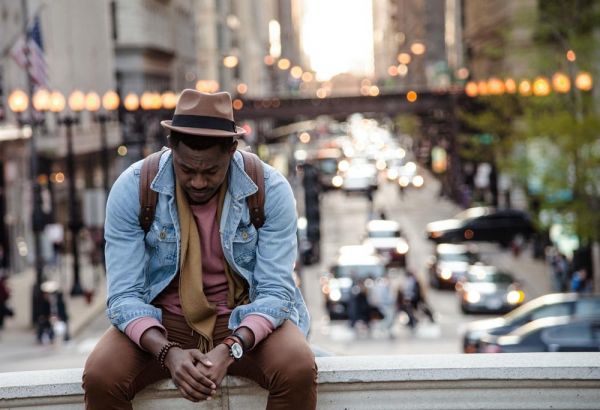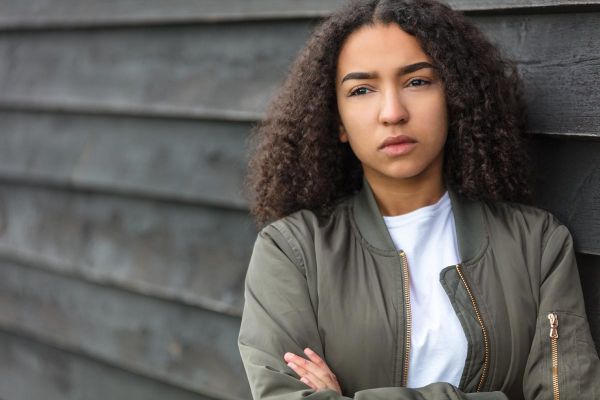 Today, an estimated 20.6% of the U.S. population, or 1 in 5 adults, suffers from a mental illness or disorder. That rate is also about the same in black and white individuals. However, mental health intersects with Black experiences to create significant differences in how mental health problems are experienced, treated, and escalated. Cultural and societal factors, such as stereotypes, experiencing racism and prejudice, and experiencing stigma and exclusion are traumatic. They also pose as barriers to mental health treatment and to regaining your mental health.
Today, an estimated 20.6% of the U.S. population, or 1 in 5 adults, suffers from a mental illness or disorder. That rate is also about the same in black and white individuals. However, mental health intersects with Black experiences to create significant differences in how mental health problems are experienced, treated, and escalated. Cultural and societal factors, such as stereotypes, experiencing racism and prejudice, and experiencing stigma and exclusion are traumatic. They also pose as barriers to mental health treatment and to regaining your mental health.
As a result, Black adults in the U.S. are significantly more likely to experience severe psychological distress without treatment. That’s even more true for those under the poverty line. While 1 in 5 Black Americans lives under the poverty line (compared to 1 in 7 non-Hispanic white Americans). And, Black Americans living under the poverty line are more than twice as likely to suffer severe mental illness and psychological distress.
Understanding how culture, society, and racism come together to influence mental health in the Black community is crucial to getting help, to finding treatment, and to repairing as much damage as possible – so you can build a better life for yourself and your family.
Higher Rates of Stress and Trauma in Black Communities
The United States is still subject to high rates of racist, prejudiced, and problematic beliefs, especially surrounding those with darker skin. Black Americans face especially high rates of stigma and racism, with most adults having actively experienced racism, including violence, aggressions, and microaggressions, for their entire life. Any act of racism is traumatic and stressful. Even if you’re “used to it”. Having to deal with high rates of racism and stress are also actively damaging to your mental health. Not only is increased stress one of the highest indicators of vulnerability to a mental health disorder, but traumatic experiences also directly cause problems like PTSD.
In one study, a single act of direct racial discrimination created measurable changes to confidence, self-esteem, and self-assurance. In neighborhoods where even light microaggressions were common, individuals in the study experienced reduced sleep, increased stress, and coronary artery problems – all of which contribute to reduced health, reduced mental health, and the risk of an earlier death. And, individuals experiencing violent racists acts were 23.95% more likely to be diagnosed with a mental or physical health problem than a peer who had not experienced a violent racist act.
At the same time, negative mental impacts from racism aren’t just about racist acts. Someone treating you as being worth less because of the color of your skin, following you in a store because you are black, or using expletives and violence is traumatic. But, so are the societal ideals and culture we absorb, especially as children.
 Racism affects:
Racism affects:
- Self-esteem and how you think about yourself
- Expectations for yourself or for your children
- Your standards of education, achievement, and living
- Your ability to let yourself relax or to be less than “perfect” about everything
- Your ability to relax in social environments
- Your confidence in social situations
For example, many Black Americans internalize ideas pushed by their schools, teachers, and mentors. It’s not uncommon to find Black people who think that Blacks are lazy, that economic disadvantages stem from laziness (they don’t), and that violence stems from clothing choices (hoodies), crime, or attitude (it doesn’t). This internalized racism is every bit as harmful as racism directed at you by others – but it can be nearly impossible to escape depending on your upbringing.
The result is that while Black Americans suffer from mental illnesses at about the same rate as non-Hispanic whites, they’re also more likely to face severe mental health problems. You’re also more than twice as likely to be denied a medical diagnosis – even in the face of severe depression and distress.
Barriers to Treatment
 Stigma, cultural differences, and fear of stigma each play a massive role in preventing Black Americans from seeking mental health treatment. For example, 11.5% of the Black population has no access to health insurance – making treatment prohibitively expensive. If you’re black, you’re 8% more likely to not receive mental healthcare than if you are white. Overcoming these barriers means overcoming internal stigma and finding a mental healthcare organization capable of delivering culturally sensitive mental health treatment.
Stigma, cultural differences, and fear of stigma each play a massive role in preventing Black Americans from seeking mental health treatment. For example, 11.5% of the Black population has no access to health insurance – making treatment prohibitively expensive. If you’re black, you’re 8% more likely to not receive mental healthcare than if you are white. Overcoming these barriers means overcoming internal stigma and finding a mental healthcare organization capable of delivering culturally sensitive mental health treatment.
Stigma – Stereotypes of self-independence, reliance, and moral upholding are massive barriers to treatment. For example, Black Men are significantly reluctant to seek out a diagnosis because of stigma. Mental health problems are often seen as personal and moral failings. Black women face similar stigma, as well as stereotypes forcing self-reliance and independence. For example, Black women identifying with the “strong independent black woman” stereotype were almost 60% less likely to seek out mental help, but as much as 40% more likely to experience recurrent and daily stress, contributing to negative mental health. As a result, Black Americans may be inclined to avoid mental health treatment to avoid stigma.
Racism – if you’re black, you’re less likely to get a diagnosis. You’re also less likely to get a correct diagnosis. And, if you move into treatment, you’re significantly more likely to experience barriers and obstacles to treatment, such as racism and poor cultural understanding from peers and even from psychologists. Racist stereotypes suggest that Black Americans are more prone to violence, less educated, and more dangerous than whites. That means you’re more likely to receive diagnoses like schizophrenia (which heavily impact driving, medication, etc.) than whites with the same symptoms, more likely to be incarcerated for crimes driven by mental illness, and more likely to be turned away without a diagnosis at all.
Getting Help
If you’re struggling with mental health, it’s important to seek out treatment and to get the medical support you need. Mental health impacts you in the same ways that physical illnesses do, a physical change in the brain results in changes in behavior and mood. At the same time, you have to ensure that your mental health treatment facility is able to treat you with the respect, cultural sensitivity, and personalized treatment you deserve.
If you’re going into a mental health facility, it is crucial that they:
- Have the resources to offer culturally sensitive treatment, with understanding and respect to cultural upbringing, experienced racism, internalized racism, and societal treatment of you
- Have black-led or directed programs, enabling you to get support from people who are more likely to share your cultural background and upbringing. The Black experience is not homogenous, but Black Americans prefer to receive and are more motivated under Black-led programs. E.g., this could improve your total quality of treatment.
- Have systems in place to prevent or to respond quickly in case of racism directed at you by a peer or staff.
Good mental healthcare is personalized, conscientious of your personal upbringing and culture, and able to help you tackle individual issues. At Gooden Wellness Center, we’re here to offer just that, with mental health treatment designed around your needs, facilitated by a team of mental healthcare professionals matched to your needs, and built around ongoing and long-term treatment and recovery. If you want to learn more, contact us at 800-931-9884 for a free consultation.
 Racism affects:
Racism affects: